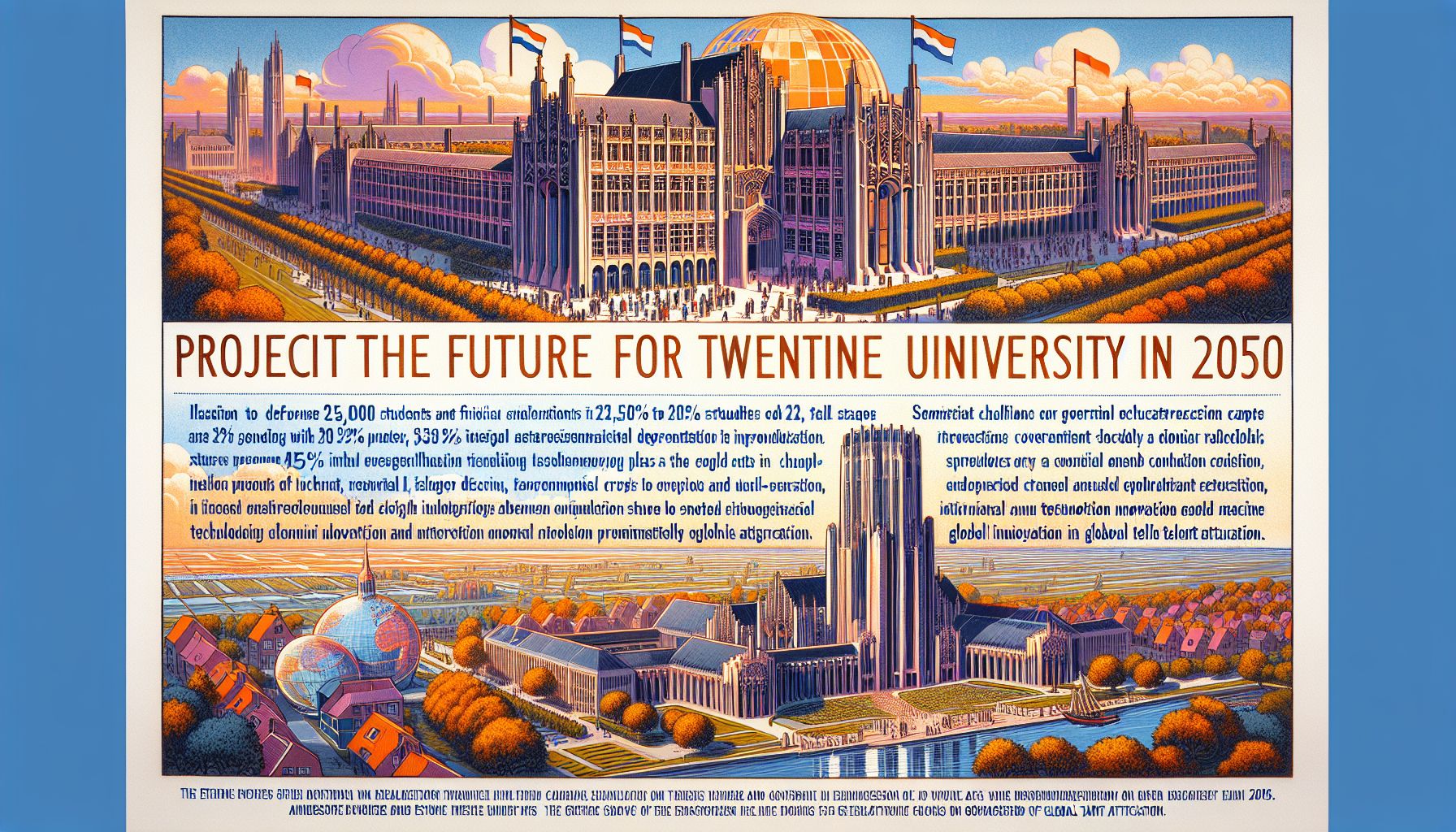Dutch University Defies Budget Crisis: Twente's Bold Plan to Double Size by 2050

Twente, Monday, 25 November 2024.
Despite facing €1 billion in national education cuts, the University of Twente announces ambitious expansion plans to reach 25,000 students and become Europe’s greenest campus. The institution, where 35% of students are international, challenges government restrictions on English-language instruction while championing technological innovation and global talent attraction.
Facing the Challenges Head-On
The University of Twente’s bold expansion plan is set against a backdrop of significant financial constraints. The Dutch government’s decision to cut €1 billion from higher education funding over four years[2] poses a formidable challenge. This financial squeeze is expected to commence with a €250 million cut in 2025, directly affecting resources crucial for maintaining the university’s international allure and quality of education. Despite these hurdles, Twente remains optimistic, setting its sights on doubling its student body to approximately 25,000 by 2050[1].
The Importance of English in Technical Education
Ank Bijleveld, chair of the Twente Board, has been vocal about the detrimental effects of limiting English-language instruction, which she describes as ‘short-sighted’[1]. With 35% of the university’s students coming from abroad, English serves as a vital medium for education and collaboration. Restricting its use could hinder both the university’s appeal to international students and the broader regional economy, which benefits from a diverse talent pool. This stance highlights the tension between national policy and global educational practices, which are crucial for sustaining technological and economic growth in the region.
Sustainability as a Cornerstone
By 2050, the University of Twente aims not only to grow in size but to redefine itself as Europe’s greenest campus. This vision of sustainability goes beyond mere expansion; it reflects a commitment to innovative and environmentally conscious education[1]. Such a transformation aligns with global trends towards more sustainable practices in all sectors, including academia. The university’s emphasis on green initiatives could set a benchmark, encouraging other institutions to follow suit, despite the financial hurdles posed by national budget cuts.
Regional and International Implications
The University’s expansion plan carries significant implications for both the local region and the international academic community. Positioned in a border region, Twente plays a crucial role in fostering cross-border educational and economic collaborations. However, the proposed budget cuts threaten to undermine these efforts, potentially impacting the Netherlands’ future earning capacity and its ability to attract international talent[1]. Local stakeholders have voiced concerns about these cuts, warning that they could stifle innovation and growth, both in academia and the broader tech sector[2].

